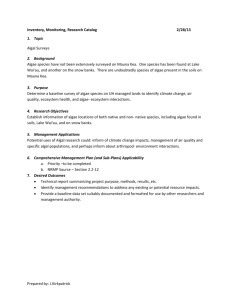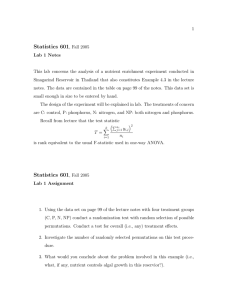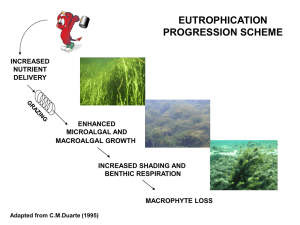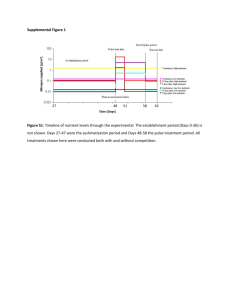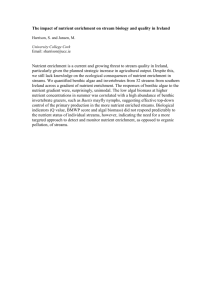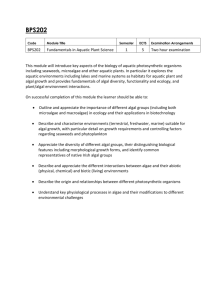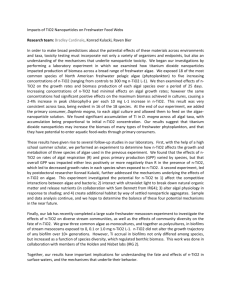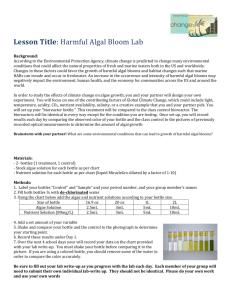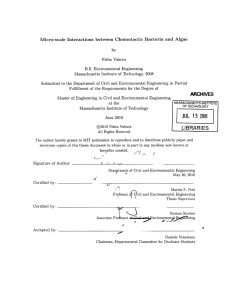ABSTRACT THESIS: Influence of algal production on ecosystem metabolism, microbial activity...
advertisement
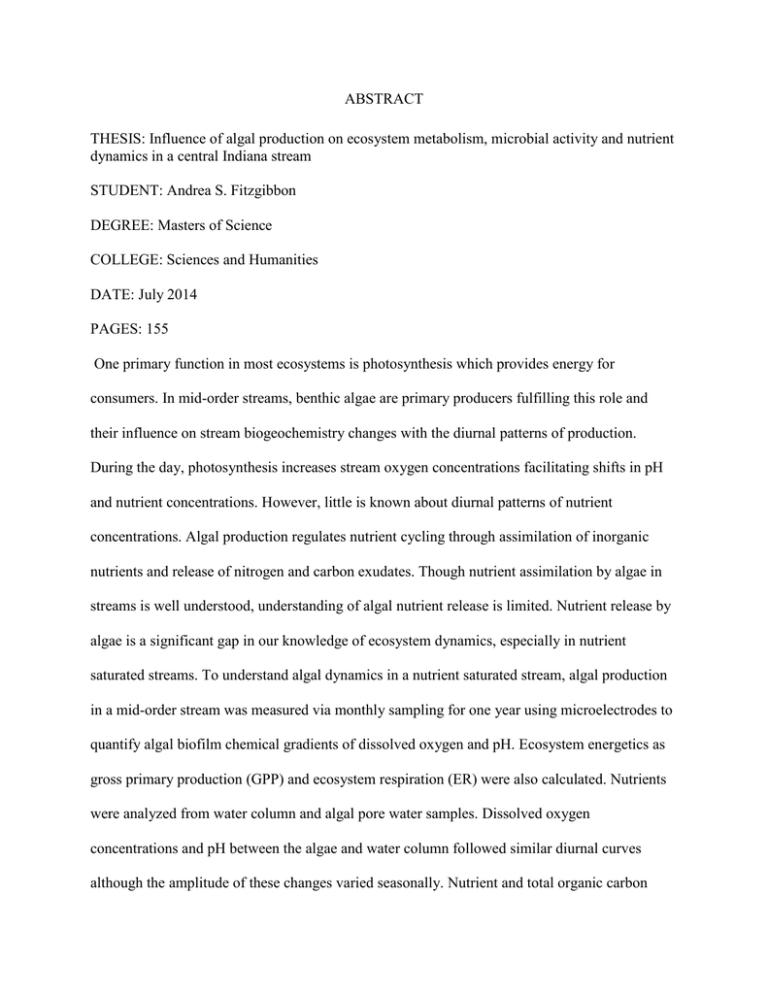
ABSTRACT THESIS: Influence of algal production on ecosystem metabolism, microbial activity and nutrient dynamics in a central Indiana stream STUDENT: Andrea S. Fitzgibbon DEGREE: Masters of Science COLLEGE: Sciences and Humanities DATE: July 2014 PAGES: 155 One primary function in most ecosystems is photosynthesis which provides energy for consumers. In mid-order streams, benthic algae are primary producers fulfilling this role and their influence on stream biogeochemistry changes with the diurnal patterns of production. During the day, photosynthesis increases stream oxygen concentrations facilitating shifts in pH and nutrient concentrations. However, little is known about diurnal patterns of nutrient concentrations. Algal production regulates nutrient cycling through assimilation of inorganic nutrients and release of nitrogen and carbon exudates. Though nutrient assimilation by algae in streams is well understood, understanding of algal nutrient release is limited. Nutrient release by algae is a significant gap in our knowledge of ecosystem dynamics, especially in nutrient saturated streams. To understand algal dynamics in a nutrient saturated stream, algal production in a mid-order stream was measured via monthly sampling for one year using microelectrodes to quantify algal biofilm chemical gradients of dissolved oxygen and pH. Ecosystem energetics as gross primary production (GPP) and ecosystem respiration (ER) were also calculated. Nutrients were analyzed from water column and algal pore water samples. Dissolved oxygen concentrations and pH between the algae and water column followed similar diurnal curves although the amplitude of these changes varied seasonally. Nutrient and total organic carbon concentrations varied seasonally. Overall, algae contributed ~ 13 % of primary production to total ecosystem production. Additionally, we assessed the influence of algal production on microbial activity using an in vitro factorial experiment. The objective of the experiment was to understand how algae may stimulate microbial respiration in a eutrophic stream ecosystem. An algal effect on microbial respiration after 3 days, was not observed likely because the labile algal exudates were quickly assimilated before the assay was conducted. Leaf substrates yielded the highest rates of microbial respiration likely due to higher carbon availability associated with leachate. Continued study of microbial responses to algae and benthic substrates will help predict ecosystem responses with changing nutrient status as streams become eutrophic.
